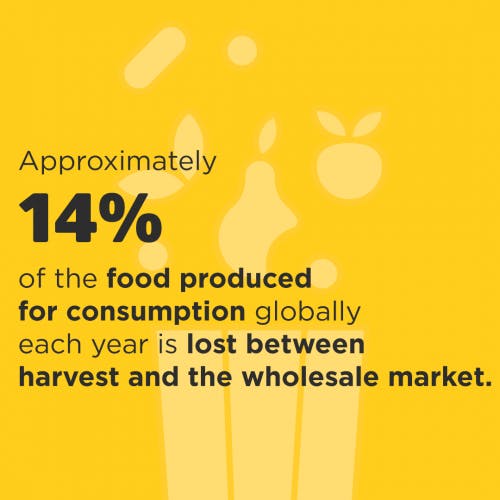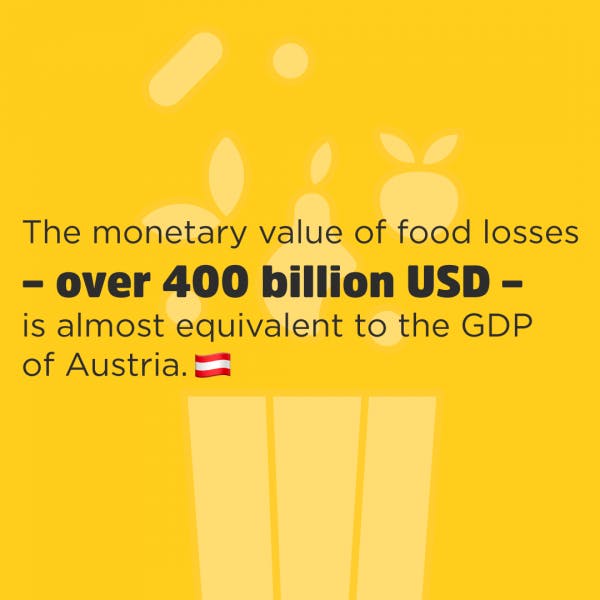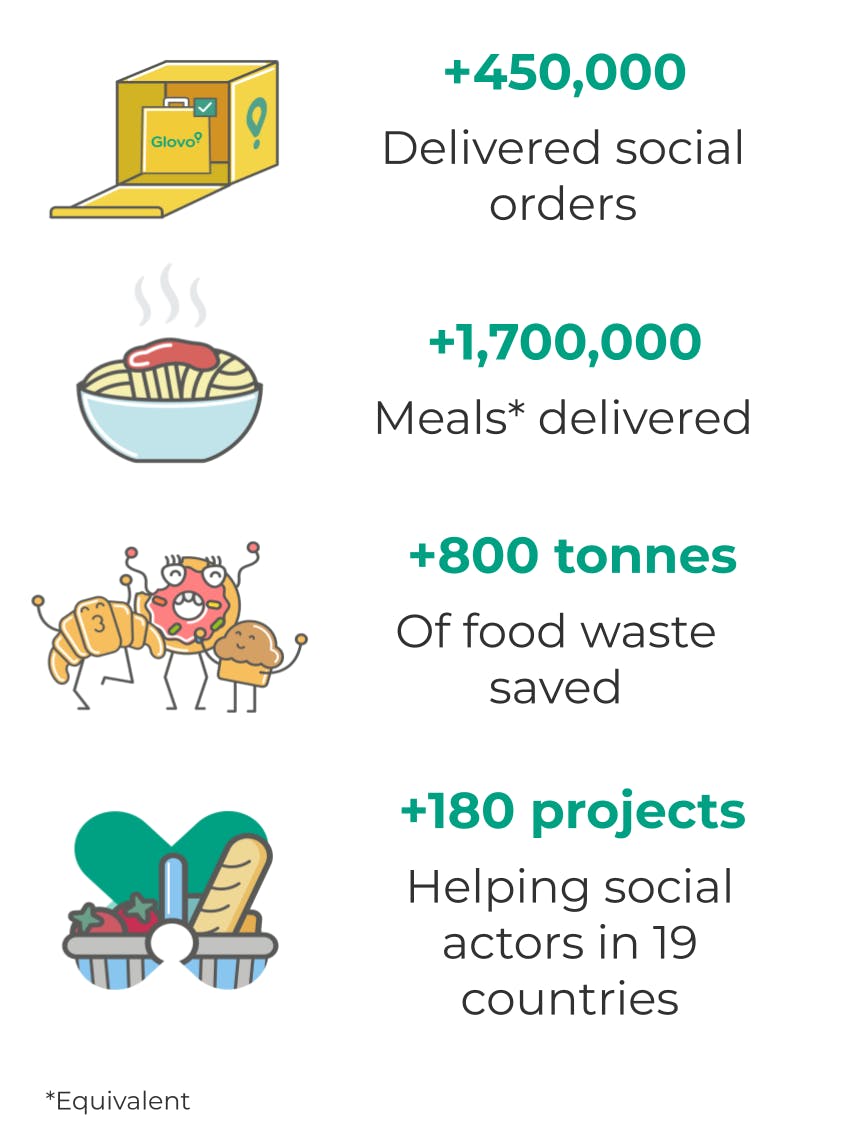
Tackling Food Loss & Waste

If you were to head open to your fridge right now and open the door, what would you find? Is it packed with healthy greens and low fat proteins waiting to be cooked up or more processed foods with grinning animal mascots on the labels? Maybe all you have in there is a 3-day old pizza doomed for the dumpster? Take account of everything and anything stored in your refrigerator. Now take 11% of what you’re looking at and go ahead and dump it into the trash. That’s how much food households waste each year.
The facts around food waste
The United Nations Food and Agriculture Organization (FAO), which focuses its work on the reduction of loss in the supply chain, states that, “Reducing food loss and waste is a significant lever for broader improvements of our food systems toward improving food security, food safety, quality and sustainability and increasing efficiency.¨

According to their findings, an estimated 14% of the world’s food is lost between harvest and retail and an estimated 17% is wasted in retail and at the consumption level (approx. 11% in households, 5% in the food service and 2% in retail). This comes at a time when as many as 829 million people worldwide go to bed hungry each night.
While it may seem like a no-brainer to toss a rotten apple over plastic packaging because it’s biodegradable, the impact is much greater than that once costs and greenhouse gasses (GHGs) are taken into consideration. This food waste translates to an annual loss of $400 billion, almost equivalent to the GDP of Austria, and accounts for 8-10% of global GHGs.

The increase in GHGs have a considerable impact on unstable climates and extreme weather events such as droughts and flooding. Summer 2022 was already Europe’s hottest summer on record and if something is not done soon, extreme weather events such as these will become our new normal, putting endangered communities at risk.
While households have more power to reduce impact on an individual level, restaurants oftentimes have fewer options when it comes to avoiding food waste. That piece of chicken left on your plate? Trashed. An order that was sent back due to a mistake? Trashed. Bad kitchen management system resulting in spoiled food? Trashed. Supermarkets also experience similar issues, bound to a never-ending circle of Best-by and Expiration dates.
The Glovo solution to preventing food waste
Glovo connects partners with consumers through an easy-to-use app. While the app was satiating paying customers through the delivery of ready-to-eat meals and groceries, we were still a part of the food waste problem. Aware of this issue, we were keen to be sure that we were a part of the solution.
Rewind to March 2020, amid the newly declared COVID-19 pandemic, Glovo Access was born. Glovo Access, a free service provided to NGOs, is a social initiative led by Glovo that aims to provide logistic support to non-profit organizations and public institutions in the development of their social purpose. One of those social purposes was aimed at reducing food waste across all of our stakeholders by covering all the logistical costs of next-to-last-mile logistics for NGOs, ensuring food that is donated makes it out to people who need it. A win win for both sides.
Globally, through Glovo Access, we have delivered the equivalent of over 1.7M meals giving new life to more than 800 tonnes of food waste. These results were achieved thanks to a portfolio of +180 projects, including initiatives such the direct donation of food surplus and redistribution of canceled orders in the Glovo platform.

Results as of August 2022
In Spain for instance, where our HQ is located, we’ve collaborated closely with Fundación Altius to design and launch our first Solidary Delivery Centre (SDC) in Barcelona in January 2022. The aim of the SDC is to centralize the collection of food surplus and digitalize food assistance for vulnerable people through home delivery in order to avoid hunger lines and dignify the access to basic food supplies. Additionally, in Madrid, we help Fundación Altius by delivering food waste from Supercor, Rodilla, and Maison Kayser to their HQ everyday.
Meanwhile in Barcelona, we also assist the local Food Bank and other social entities by delivering food waste and donations to beneficiaries who depend on it and who experience reduced mobility (ie. elderly people or those without transportation means).
At select Glovo Supermarkets, known better on our app as Glovo Express, we’ve also partnered with Too Good to Go in both Spain and Portugal. Their mission is to make sure good food gets eaten, not wasted because every day, delicious, fresh food goes to waste at cafés, restaurants, hotels, shops, manufacturers, and supermarkets – just because it hasn’t sold in time. Through our partnership with them, we’ve been able to save over 23,000 KGs of food since the beginning of 2022.
To learn more about what you can do as an NGO to help endangered local communities with Glovo Access, get in touch with us herehere.